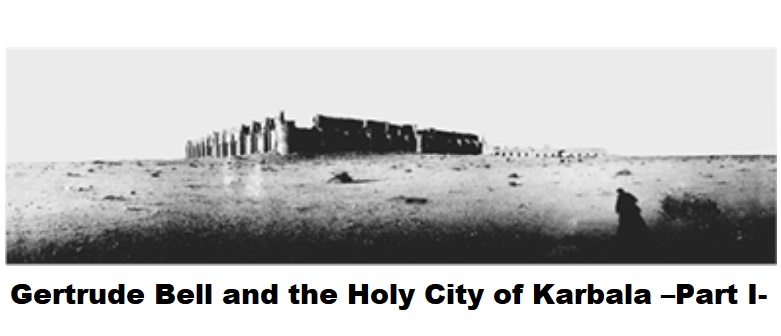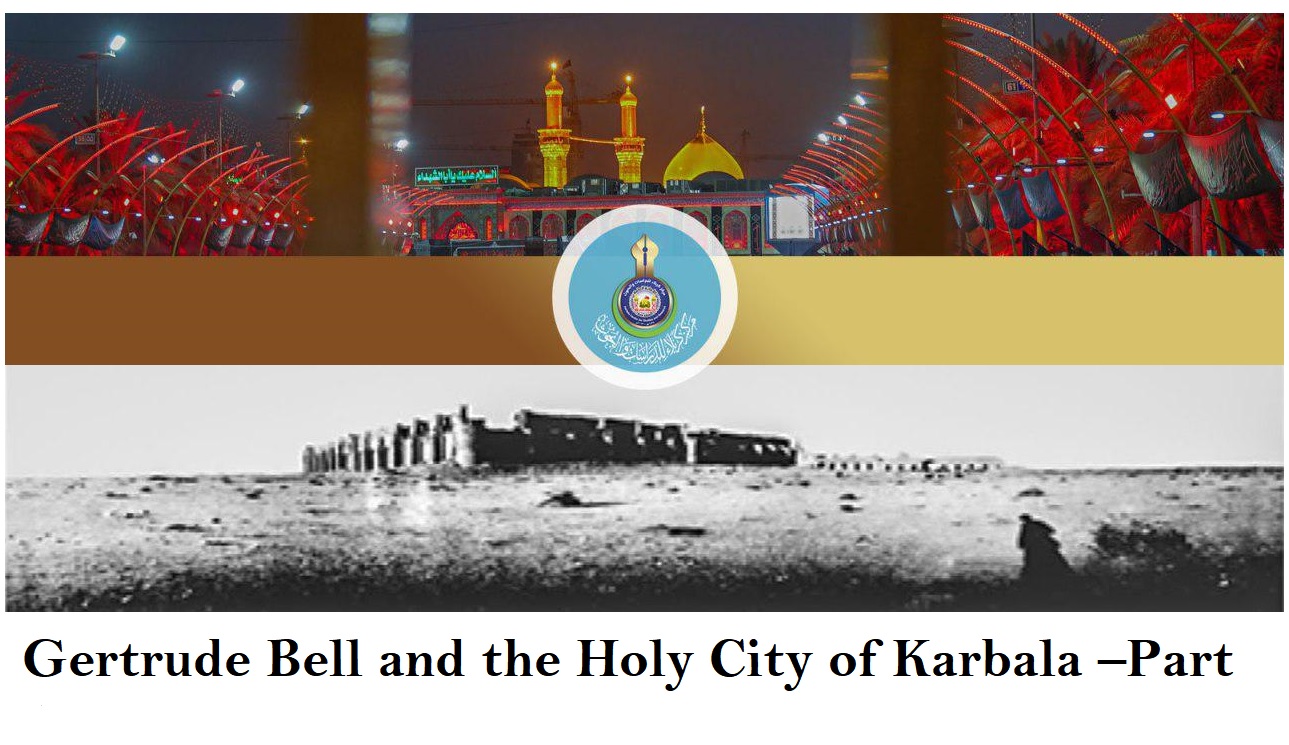Bell’s photograph of the site of Ukhaidir from the north-east. Approaching from Shetateh, this would have been among Bell’s first views of the site. Her shadow appears in the lower right.
Of all the wonderful experiences that have fallen my way, the first sight of Kheidir is the most meorable. It reared its mighty walls out of the sand, almost untouched by time, breaking the long lines of the waste with its huge towers, steadfast and massive, as though it were, as I had at first thought it, the work of nature, not of man.
Upon entering Ukhaidir, Bell found the castle inhabited by a group of Arabs who had come from the Nejd, dissatisfied with the politics of that region and desiring to pursue a more lucrative trade in camels and horses in Ottoman-controlled Mesopotamia. They were using Ukhaidir as their base. The families had camped within many of the rooms, finding the shelter within the castle walls ‘more than sufficient for their needs [than] to the race at whose command it had been reared. Bell was not troubled by the group's habitation of the palace; indeed, to her Orientalist imagination, they enhanced the romantic quality of the place, bringing its ancient character to life. Bell describes Ali, the sheikh of the Jawf, as ‘a splendid creature with black hair falling in plaits on either side of his face’ who, with his brothers, ‘passed like ghosts along the passages, they trailed their white robes down the stairways. At her most lyrical, Bell describes the Arab tribesmen gathered round their hearth in the evening in the great hall of the palace:
where their forefathers had beguiled the hours with tale and song in the same rolling tongue of Nejd [...] The thorns crackled, a couple of oil wicks placed in holes above the columns, which had been contrived for them by the men-at-arms of old, sent a feeble ray into the darkness.
One of their members, playing a single-stringed Bedouin rebabah, sang about a prince great and powerful, patron of poets, leader of raids, and recently overwhelmed and slain in battle; but old or new, the songs were all pages out of the same chronicle, the undated chronicle of the nomad. The thin melancholy music rose up into the blackness of the vaults; across the opening at the end of the hall, where the wall had fallen in part away, was spread the deep still night and the unchanging beauty of the stars.
Bell, enchanted by the scene around her, offered up her own verse for Ukhaidir, a quote from the poet Labīd ibn Rabī'ah, which also served as the epigraph for Amurath to Amurath:
‘We wither away but they wane not، the stars that above us rise; / The mountains remain after us، and the strong towers when we are gone.
Source:
In Search of Kings and Conquerors, Gertrude Bell and the Archaeology of the Middle East - Lisa Cooper
[P 107].


